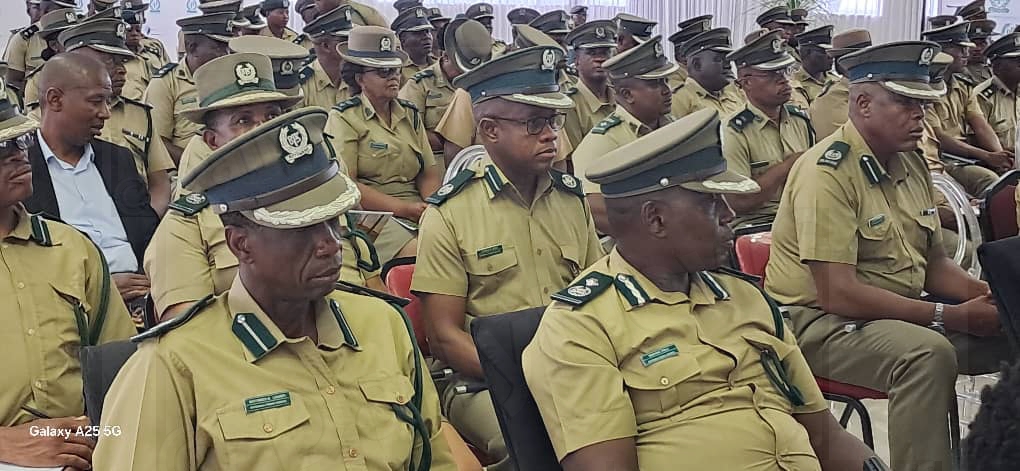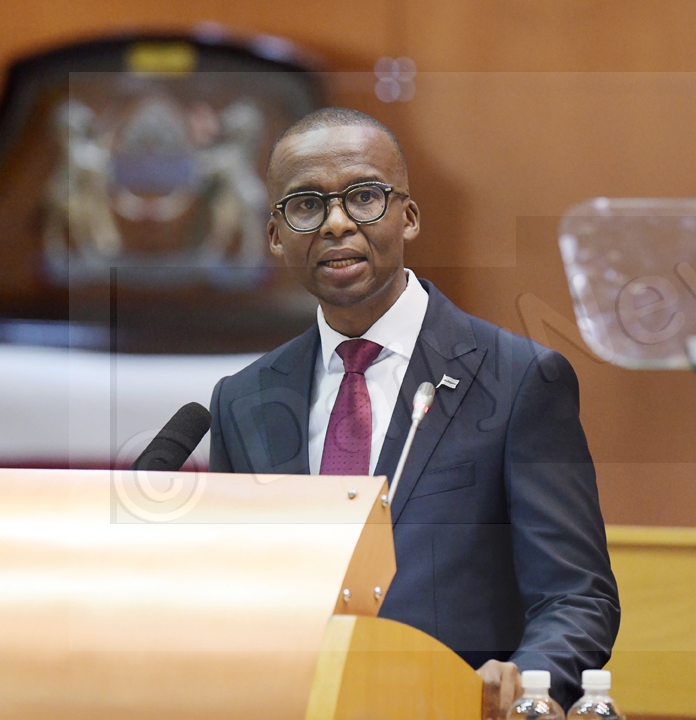BPS to transform into correctional service
12 Jan 2025
Botswana Prison Service will in the near future transform to the department of correctional service.
Addressing Botswana Prison Service’s senior officers at staff college in Mahalapye on Friday, Minister of Justice and Correctional Services, Mr Nelson Ramaotwana said the legislation governing Botswana Prison Service would be reformed by repealing the Prisons Act and re-enacting in its place the correctional services act.
Furthermore, he said the amendment would be embedded in the new law and human rights principles which were contained in the domesticated treaties and conventions on the minimum standards for the treatment of offenders would also find its way into the act.
He therefore buttressed the need for the institution to align its 2025-2029 strategic plan to the five-year political term for the government of the day to effectively discharge its mandate. The minister said every government had its own policies upon which its plans were premised.
Mr Ramaotwana stated that the new administration cherished human rights and such would be infused into policies and strategic plans.
Given this position, the Minister said all government departments would have to infuse human rights in their policies and strategic plans to better serve the government of the day and ultimately trickling into improved standard and quality of life for Batswana.
Mr Ramaotwana said it should be noted that historically, imprisonment was based on retribution of which its major thrust was to make any offender pay for the crime by enduring pain or hardship. He said it had its underpinning on the Biblical principle of an ‘eye for an eye’ that was interpreted as saying that it shall be done to him as he did to others (Matthew 5:38-39), noting that the world had however moved on.
Over the years, he said countries realised that retribution was not serving them well and were now of the view that offenders must be given training, education and treatment for personal frailties, triggering the need for rehabilitation or correction.
“That is how vocational training programmes such as construction, welding, agriculture and tailoring, among others were developed and implemented in prisons and correctional services facilities,” he said.
On the other hand, offender rehabilitation is based on the understanding that society needs to assist offenders to get rid of criminal tendencies, Mr Ramaotwana said and pointed out that it was premised on the believe that offenders who had been corrected were less likely to commit an offence again.
Offender rehabilitation or correction he said was a crime prevention strategy could lead to a more sustainable protection of society. Another proposed reform he noted was the consideration to introduce the concept of unionism in the conditions of service for Prison Officers.
The Minister stated that the intention was to create a platform of discussion and engagement between the employer and employee, and it would not in anyway affect issues of discipline.
Minister Ramaotwana said unionisation of law enforcement institutions was not indiscipline as some people might think but rather, its motive was to recognise human rights, adding such a move was a positive development which had been effectively adopted in many progressive democracies around the world.
The minister was optimistic that the enactment would materialise before the winter session of Parliament elapses which focuses on making laws. Mr Ramaotwana challenged the senior management team to introspect and said government was expecting prison service to adopt a culture of human rights, taking responsibility for maintaining their infrastructure and generating revenue toward the consolidated fund as well as reducing government financial burden on prison food rations.
Mr Ramaotwana opined that there was no precise definition for human rights but it was universally agreed that there were those rights that were natural and applied to every human being upon birth, arguing that they did not depend on a legal system to exist and as such were inalienable and indivisible.
He borrowed words from a renowned philosopher, Pramod Mishra from the book Human Rights: Global Issues, in which the author argued that human rights were those rights which were inherent in people’s state of nature and without, they could not live as human beings. ENDS
Source : BOPA
Author : Keith Keti
Location : Mahalapye
Event : meeting
Date : 12 Jan 2025




